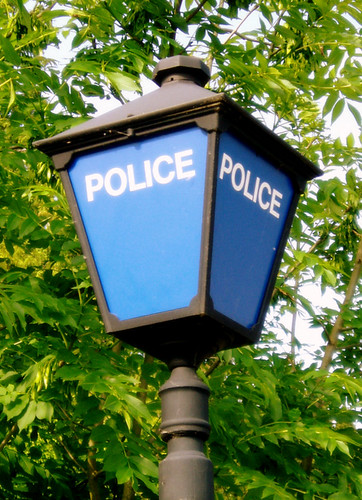Police have a fairly obvious presence in our lives – we see them at events, driving on the roads, and we count on them if we happen to be a victim of a crime. They are so familiar that many people probably think they have a good idea of exactly what the police do each day. I’ve worked around police for much of my career, and because of this, I also thought I had a good idea of what they did. Was I ever wrong! And after reading the comments in a blog post the other day about police helping a guy recover his iPhone, I realized what I’m sure the police already know – few people in the general public really know or understand what they do.
Of course, I am still very, very far from being an expert on law enforcement. Actually, I’m not even close. But after reading those comments, I thought it was important to share what I learned about their work because it was not what I expected. It was many years ago, and the mayor who I worked for asked me to write a grant so the city could receive federal money to hire some police officers. I set about my task and soon realized I would need to categorize and summarize months of police calls. This was before we had a computer system that could automatically generate this type of report. So I had to read each call to figure out what category it belonged in.
That year, I was probably around 30+ years old. Definitely old enough to think I knew what type of calls we were getting – locked keys in cars, theft, gang or bar fights, drugs, DUI, traffic accidents, etc. And sure, there were those types of calls, obviously more in some categories than others. But what completely surprised me was that the majority of calls, and I mean the MAJORITY, were calls for domestic disturbances or for calls from people who seemed to be imagining things. (I say imagining because the police did go to these homes over and over again and consistently found nothing – no one sneaking around the home, no horse looking in the window, no one sneaking into a home and moving things).
Never would I have imagined that many families in our community were fighting or having disagreements of such severity that they would regularly have to call the police to resolve the matter. And most of the calls were from the same homes over and over again. It was the same thing for the people who “imagined” things. The same people called all the time, and each time an officer would have to go because they would not know if someone was really there or not unless they checked. But each time, nothing.
I asked our policemen about this, and they confirmed that yes, much of their time was spent going to resolve fights between family members. They shared with me that they do receive training in conflict resolution to help manage these situations. And one of the aspects of it that makes it challenging is they really can’t tell sometimes who is “right.” For example, a husband might accuse a son of stealing something from his home yet the son says it is his. How is the policeman to know whose it really is? Yet he has to somehow help calm everyone down and work towards a resolution.
I came away from that grant-writing experience with a whole new understanding of what police work really involves and what our police face every day. Not only do they take care of the “bad guys” and handle traffic, but most of the time they’re monitoring and helping smooth out that undercurrent of turmoil in our communities.
(If you’re interested in learning more about the type of calls police are receiving in your town, you’re in more luck than I was 20 years ago. Today, many police departments post on their city’s website the number and type of calls they receive.)


And of course, many departments (including mine) offer a “Civilian Police Academy” to invite you in to become familiar with the day-to-day operations of their police department. Participants often gain a better understanding of the procedures, guidelines, responsibilities and demands of personnel, as well as the laws and policies that guide police decision-making.
In fact — our next class will start in early September, so if anyone reading is a NJ TRANSIT customer over the age of 21 and is interested, send me a message for more information!
Andrew – that is a great service and so needed in many communities. Kudos to your department for hosting that type of program!
Your post brought tears to my eyes. I have eleven years in law enforcement and am married to a retired sergeant. People have no idea what law enforcement does. They think our officers eat donuts and have citation quotas to meet.
Karen
Thanks so much for your comment – I can only hope my post helped a little in explaining to the public what police deal with every day.